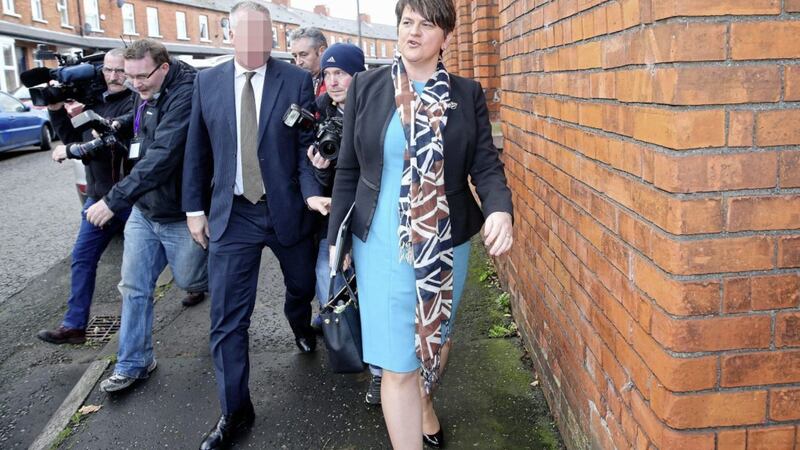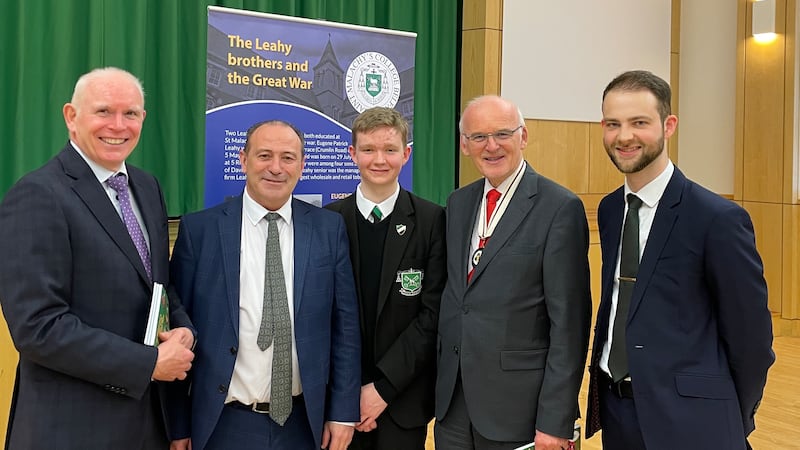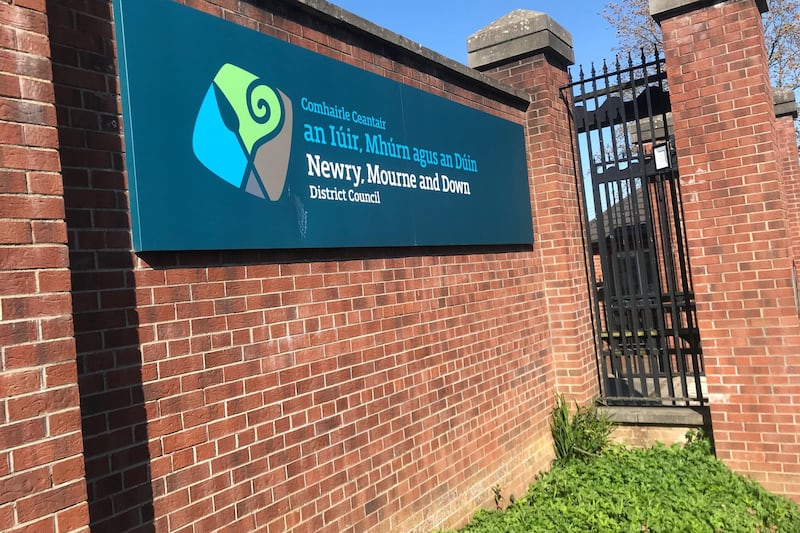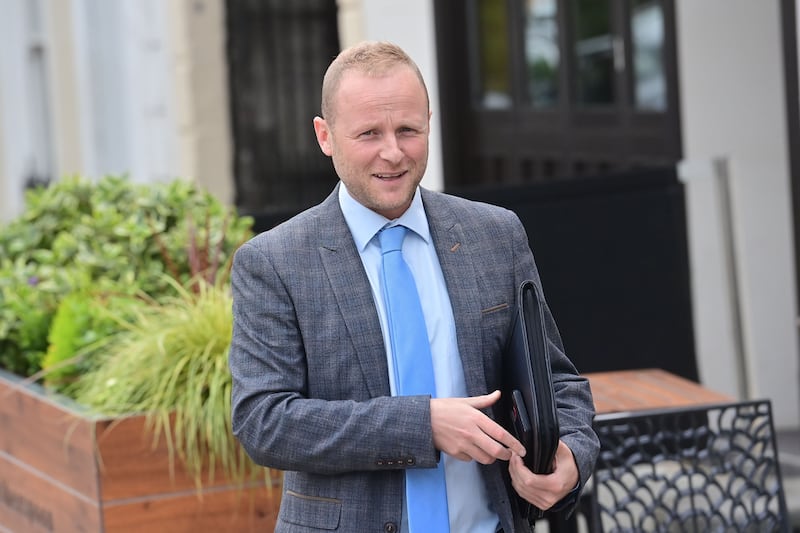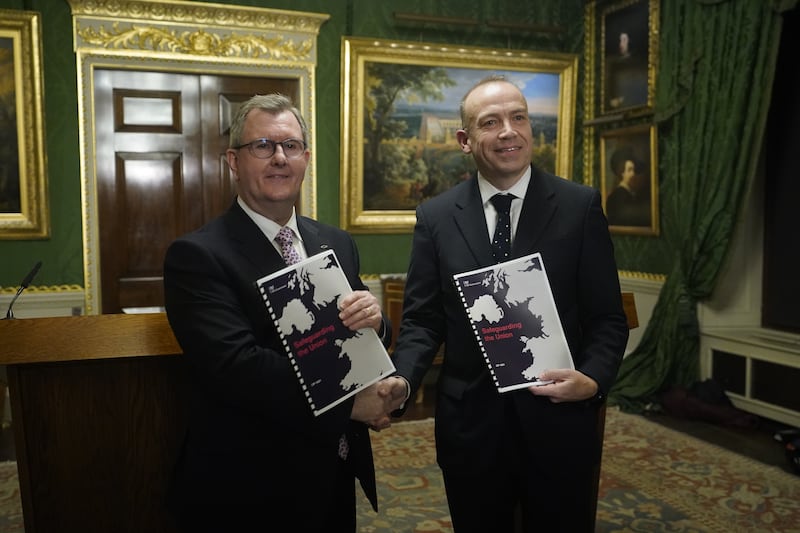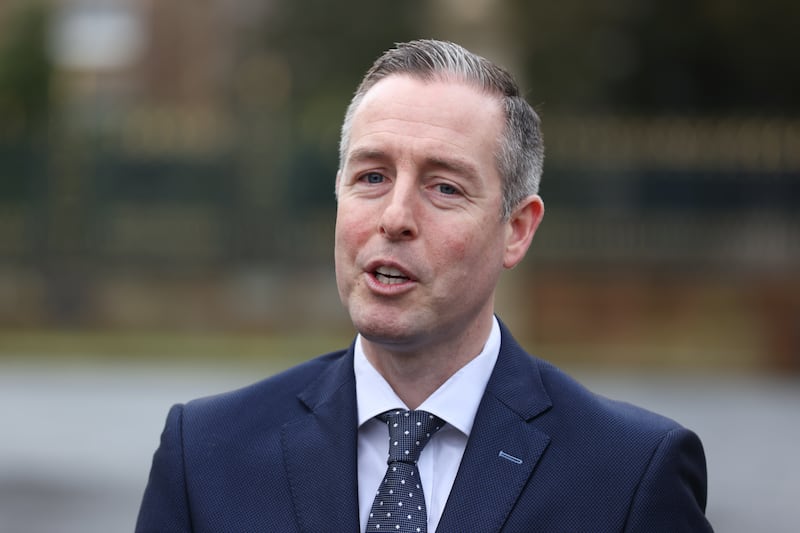DUP leader Arlene Foster has called for a public inquiry into the botched green energy scandal and said she was open to discussions with Sinn Fein following the resignation of Deputy First Minister Martin McGuinness.
At a press conference this afternoon, Ms Foster said she had been "quite disgracefully maligned in the most vicious manner" over her role in the Renewable Heat Incentive (RHI) scandal.
She said it was important the "truth" comes out.
[ Read Arlene Foster's full statementOpens in new window ]
Mrs Foster said that over the last few weeks Sinn Féin would not agree to the establishment of an inquiry until she agreed to step aside as First Minister
"For me I felt to have done so would have led to the conclusion that I was guilty of something improper which is not the case.
"I am no longer the First Minister so therefore there is no reason, under Sinn reins reasoning, why an investigation cannot now be established."
"If Sinn Fein are still unwilling to allow an investigation to be established I intend to ask for an investigation, on the basis of the terms of reference discussed as part of our discussions with Sinn Fein, to be set up under the Inquiries Act 2005."
The departure of Sinn Féin veteran Mr McGuinness amid a row over the green energy scandal forced Mrs Foster from office as well.
Theoretically the parties have seven days to resolve their differences before Mr Brokenshire has to call a poll.
However, Mr McGuinness has made clear there will be no going back to the status quo and his party is preparing to face the electorate.
The British Government today appealed to Northern Ireland's political leaders to step back from the brink of the current political crisis.
Northern Ireland Secretary James Brokenshire told the House of Commons the situation was "grave" and a snap election was now highly likely.
Mr Brokenshire expressed concern about the consequences of an election, raising the spectre of a return to direct rule. He urged the leaders to work together to find a resolution and safeguard the progress made under the peace process.
"We must not put all of this at risk without every effort to resolve differences," he said.
"We must continue to do all we can to continue to build a brighter, more secure Northern Ireland that works for everyone and I therefore urge Northern Ireland's political leaders to work together to come together to find a way forward from the current position in the best interests of Northern Ireland."
He said: "We do have to be realistic - the clock is ticking. If there is no resolution an election is inevitable despite the widely held view that this election may deepen divisions and threaten the continuity of the devolved institutions."
The secretary of state's comments came after a senior DUP politician predicted that Northern Ireland faced a prolonged period of direct rule from Westminster.
Jeffrey Donaldson said the bitter political row between his party and Sinn Féin was unlikely to be resolved without a lengthy talks process following the looming snap election.
The DUP MP also questioned whether the existing mandatory coalition power-sharing arrangements could ever be revived, and said his party could now press for major reform and the introduction of a system of voluntary coalition.
"My own sense of where we are is that we are looking at a prolonged period of direct rule because I don't see these issues being resolved in a talks process in a short space of time," he said.
"I think that Sinn Fein have dealt a serious blow to power-sharing and I think the prospect of a mandatory coalition being restored has been greatly diminished, so if we are going to have another talks process then I think unionists will want to be looking at how Stormont operates and whether we should be moving towards our objective of a voluntary coalition form of government."
Mr McGuinness's decision to walk away after 10 years of sharing power with the DUP came as Mrs Foster refused to stand aside to facilitate a probe into the ill-fated Renewable Heat Incentive (RHI) - the so-called "cash for ash" furore.
The doomed energy scheme has left the administration in Belfast facing a £490 million bill.
DUP leader Mrs Foster oversaw the RHI during her time as economy minister.
She had repeatedly rejected Sinn Féin's demands to step down temporarily pending the outcome of a preliminary investigation.
Under the structures of the peace process-forged institutions, neither Stormont's first minister nor deputy first minister can remain in post without the other, so Mr McGuinness's resignation spelt the end of Mrs Foster's current tenure in the job.
Mr McGuinness denied that his health problems, for which he is undergoing intensive treatment, had influenced his move.
